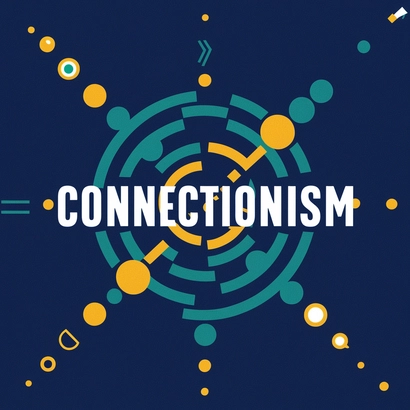Connectionism
An approach within cognitive science that models mental or behavioral phenomena as the emergent processes of interconnected networks of simple units, often likened to neurons and their connections resembling synapses in the brain. The core idea is that cognitive functions arise from the collective interactions of a large number of processing units, not from single neurons acting in isolation.
Areas of application
- Cognitive science
- Artificial intelligence
- Neuroscience
- Machine learning
- Computer vision
- Natural language processing
Example
For example, a connectionist model of language processing could consist of interconnected networks of simple processing units, each representing a phoneme or morpheme, and their connections allowing for the generation of complex linguistic structures through the collective interactions of these units.
